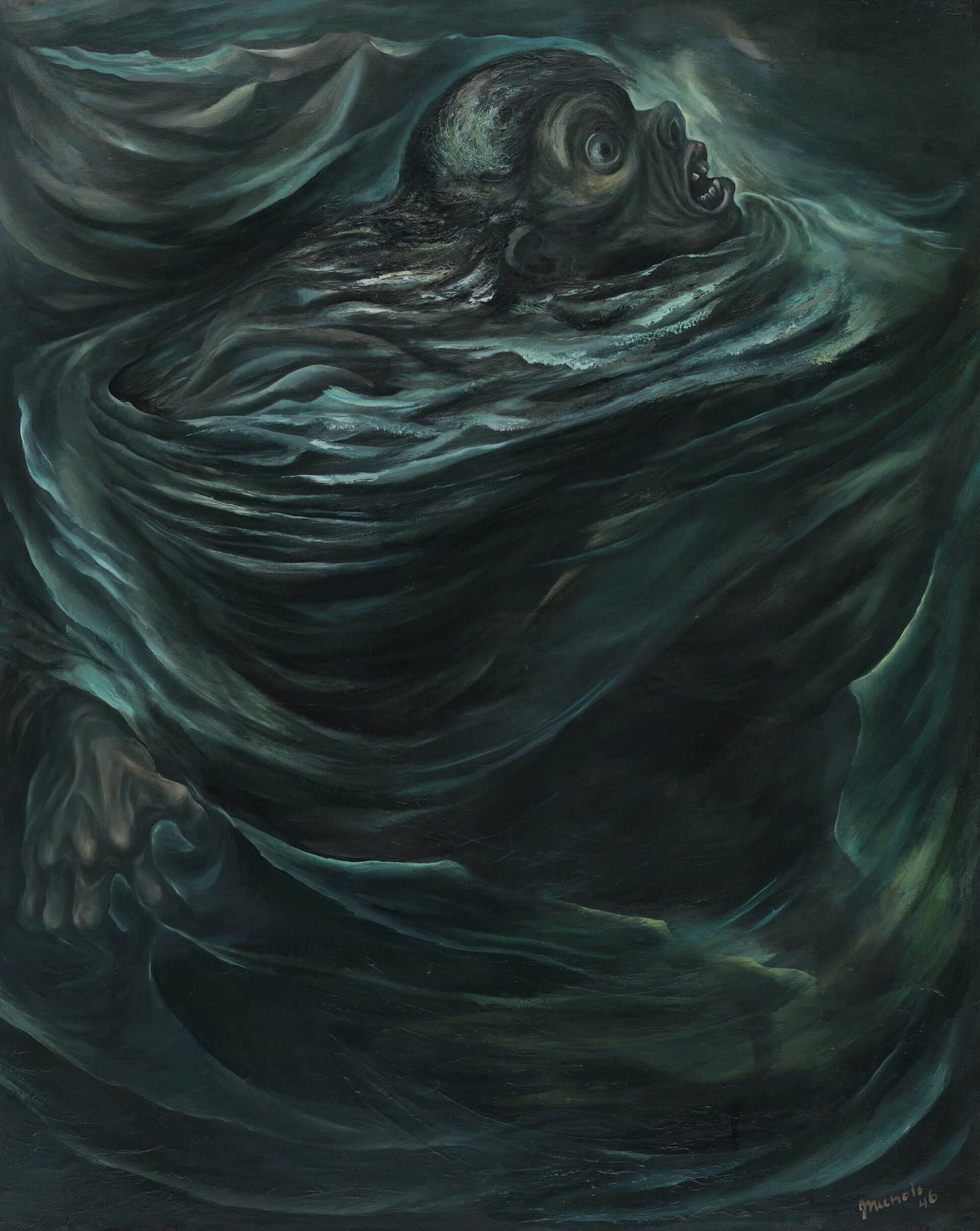When I was reading Horace, I had the brilliant idea of learning to write Alcaic stanzas. In the same period I read for a second time Eliot’s Waste Land and I got struck by the fourth section of the poem. Little I knew then (around May) that this project would have taken me so many months to complete.
In “Death by Water” the narrator describes a man, Phlebas the Phoenician, who died by drowning. Eliot was probably inspired by the sequence of epigrams in the Palatine Anthology, «which are dedicated to drowned sailors and the like»1.

Death by Water
Phlebas the Phoenician, a fortnight dead,
Forgot the cry of gulls, and the deep sea swell
And the profit and loss.
A current under sea
Picked his bones in whispers. As he rose and fell
He passed the stages of his age and youth
Entering the whirlpool.
Gentile or Jew
O you who turn the wheel and look to windward,
Consider Phlebas, who was once handsome and tall as you.
Naufragium
Qui septimanas mortuus est duas,
Vocem larorum, Sidonius Phlebas,
Fluctusque jacturam profundi
Non pelagi meminit lucrumque.
Submersus omnem gurgite transiit
Aetatis horam, sub pelago fretum
Quod carne nudavit susurris,Dum exoritur labiturque corpus. Dum cadit exoriturque corpus.
Ventum ad secundum cum adspicias ita
Clavumque flectas, respice tu Phlebam
Gentilis aut Judaeus, olim
Qui fuit altus itemque pulcher.
v. 1, septimanas … duas, fourteen days (two weeks) are called a fortnight.
v. 2, Sidonius Phlebas, although a historical record of the name Phlebas (from φλέψ blood-vessel, vein or artery) cannot be found in antiquity, «the formation by adding the suffix -as is regular enough»2.
vv. 3-4, Fluctusque – lucrumque, Phlebas forgot (non meminit) many things: «the cry of gulls» (vocem larorum), «and the deep sea swell» (fluctusque … profundi … pelagi), «and the profit and loss» (jacturam … lucrumque). My translation is more tangled than I wanted, but I couldn’t find a better phrasing.
vv. 5-8, Submersus … gurgite, overwhelmed by the whirlpool.
omnem – horam, he passed every moment (hour) of life. Apparently, Horace never used the -ii form of the perfect, so transiit is a blue-pencil error.
sub – susurris, (the body) that a current under sea deprived of flesh with whispers.
dum – corpus, while the body rises and falls.
v. 9, Ventum ad secundum, windward is the wind side, the side turned to the favourable wind.
v. 10, Clavumque flectas, clavus can mean the handle of the tiller.
H. Musurillo, “A Note on the Waste Land (Part IV)”, Classical Philology, 3, 1956, pp. 174-175
idem




Very good. We all need correctors - I often get quantities wrong first time.
Perhaps even dum rotat excutiturque corpus.
Lābitur.
But there are many alternatives.